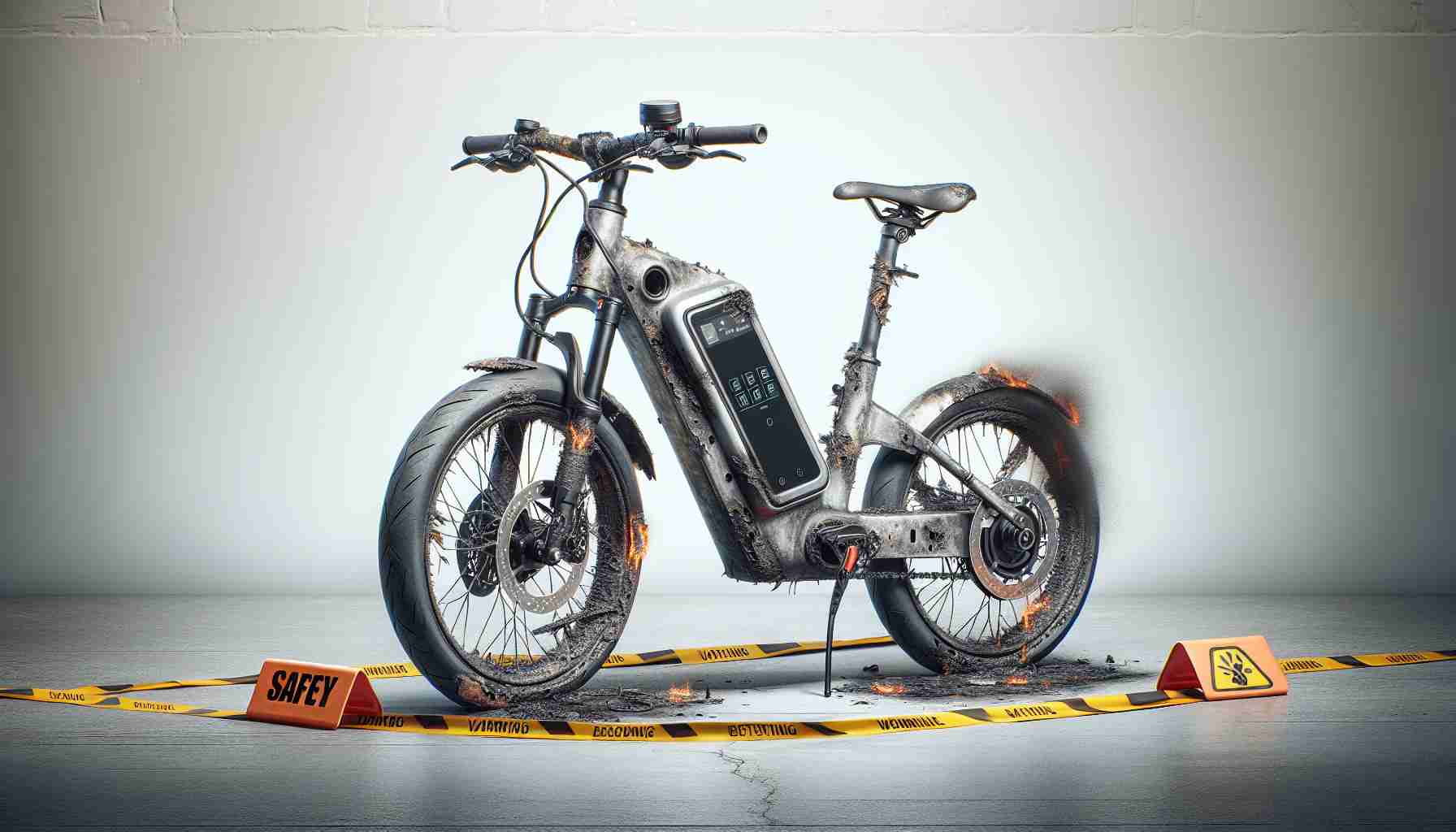In a recent incident in Fargo, an electric bike’s faulty lithium battery was identified as the source of a significant apartment fire. The emergency unfolded at around 2 p.m. on September 17th, drawing firefighters to the scene at 1781 35th St. S. Upon arrival, they found smoke in the building, but quick action from the apartment’s sprinkler system had already suppressed the flames, averting extensive damage.
Investigators determined that the battery, which was charging at the time, malfunctioned—a growing issue in the realm of consumer electronics. As electric bikes and other battery-operated devices gain popularity, the frequency of fires linked to compromised lithium batteries is increasing, prompting safety experts to sound alarms about proper usage.
To mitigate risks, it is crucial for owners of lithium-ion batteries to adhere strictly to manufacturer guidelines and use only the recommended charging equipment. Furthermore, vigilance against environmental factors is essential; keeping batteries away from extreme conditions and flammable items reduces the chance of mishaps. Users are encouraged to regularly inspect their batteries for signs of failure, such as unusual swelling or overheating.
In light of these developments, sharing safety protocols with family and friends becomes paramount, ensuring everyone is aware of best practices. This case serves as a vital reminder of the fire hazards associated with improper battery management and the importance of adhering to safety guidelines.
The incident in Fargo highlights a significant concern within the growing industry of electric bikes (e-bikes) and their associated technologies. The e-bike market has seen exponential growth over the past few years, with an increasing number of consumers adopting these eco-friendly modes of transportation. According to various market reports, the global e-bike market size is expected to reach USD 46.04 billion by 2026, growing at a compound annual growth rate (CAGR) of 11.5% from 2021 to 2026. Factors contributing to this growth include rising urbanization, environmental awareness, and an increased emphasis on sustainable transportation solutions.
However, as the e-bike market expands, so do the challenges it faces, particularly regarding safety and battery management. The lithium-ion batteries that power these bicycles are susceptible to malfunction if not managed properly. Reports of fires and injuries related to faulty batteries have raised concerns among regulators and manufacturers, prompting calls for stricter safety regulations and battery standards. Furthermore, as manufacturers strive to enhance battery performance and longevity, they must also ensure that advancements do not compromise safety.
Another pressing issue is the recycling and disposal of lithium batteries. As the number of e-bikes increases, so does the potential for environmental hazards posed by improper disposal of these batteries. Recycling processes for lithium-ion batteries still face many hurdles; more efficient and sustainable recycling methods are urgently needed to minimize environmental impact.
To combat these challenges, several organizations and manufacturers are actively working on improving safety protocols. Initiatives include developing comprehensive safety education programs for consumers, advocating for better battery design standards, and establishing clear recycling procedures.
For consumers, understanding how to handle and charge their lithium-ion batteries can significantly reduce the risk of incidents like the one in Fargo. By following manufacturer guidelines, regularly inspecting batteries, and being aware of fire hazards, users can ensure a safer experience with their electric bikes.
Sharing knowledge about safe practices is becoming essential as e-bike popularity continues to rise. This includes discussions about common signs of battery failure and the importance of using the correct charger. Such awareness can help prevent future incidents, protecting not only e-bike users but also the broader community.
For more information on electric bikes and industry safety standards, you can visit Electric Bike Company and Vanmoof.







